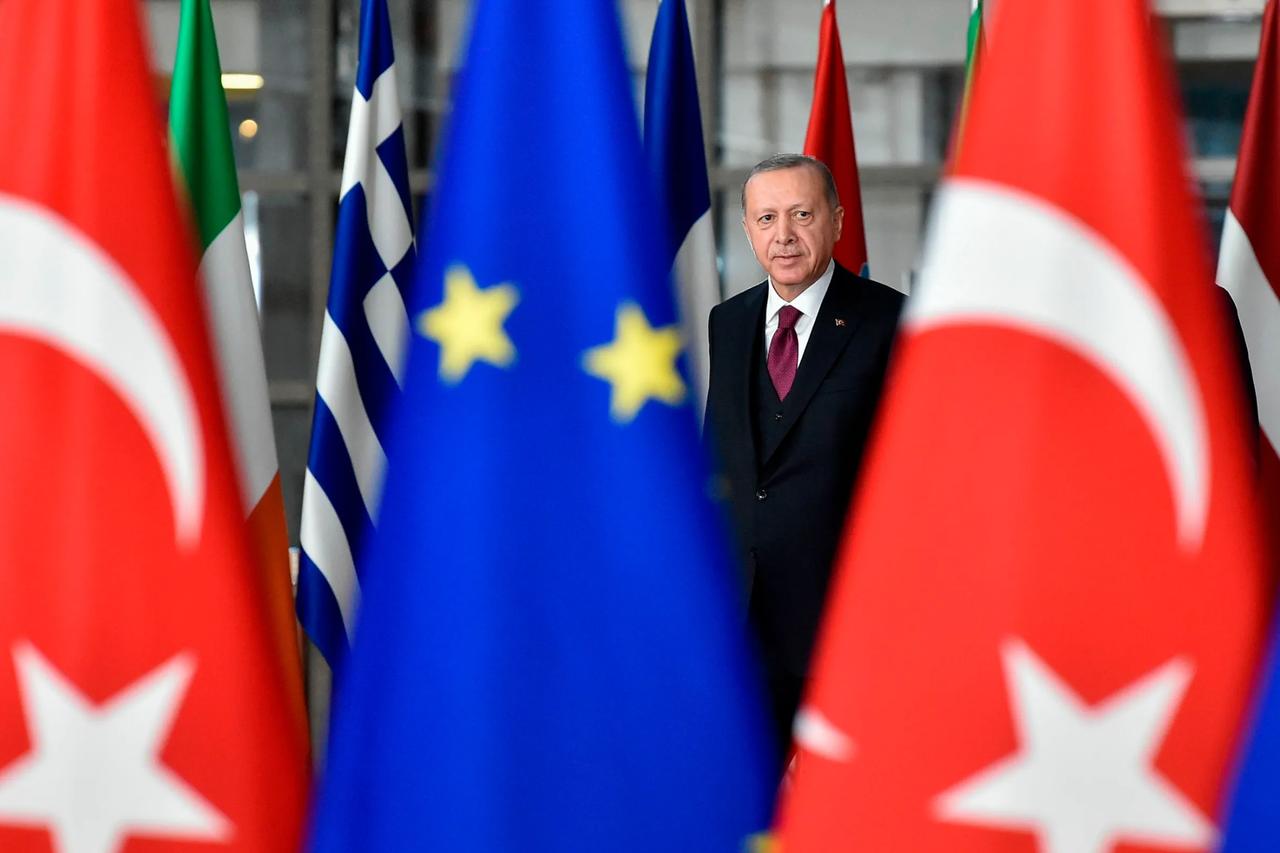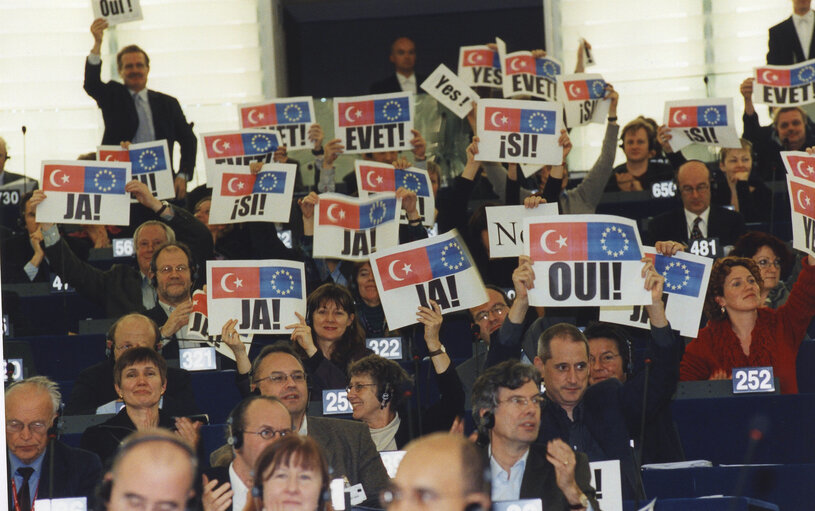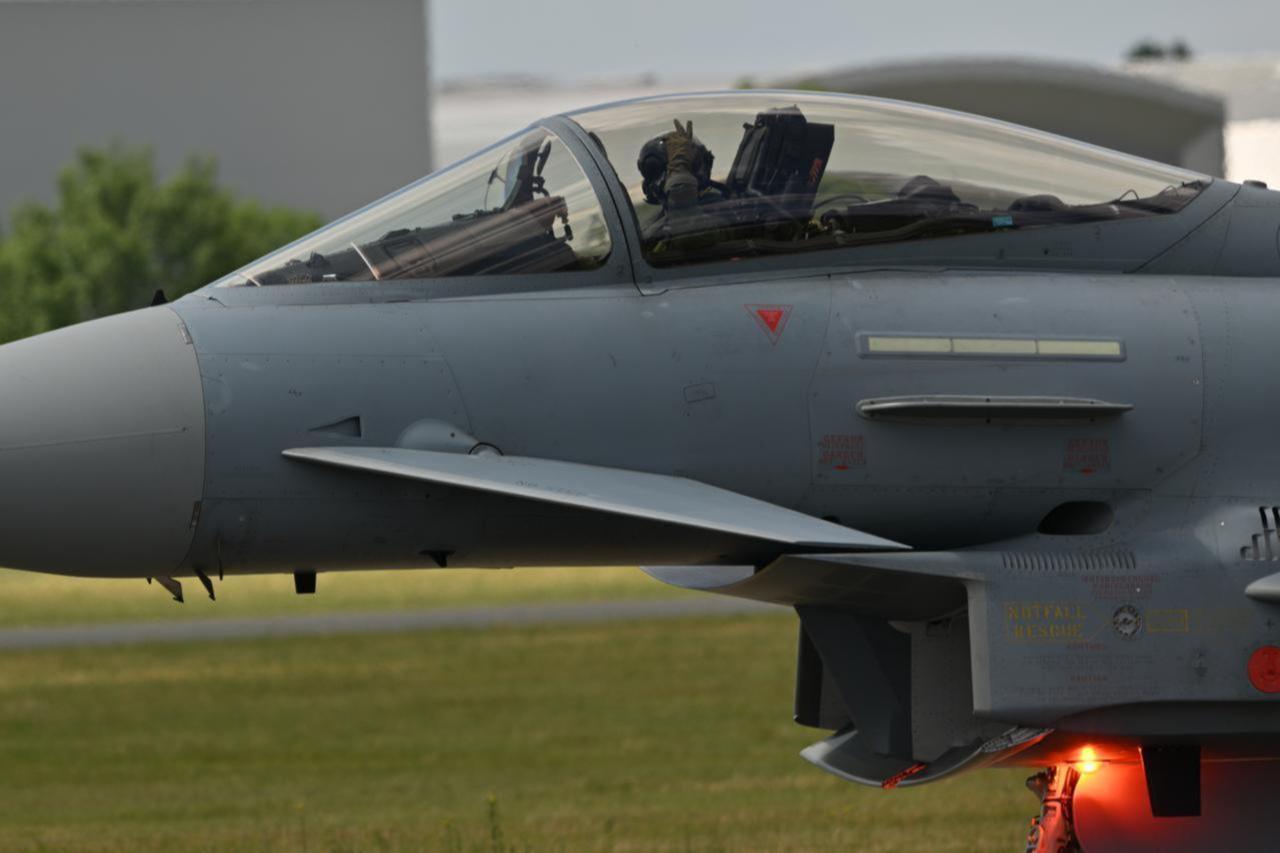
Türkiye achieved a significant breakthrough in its plan to acquire Eurofighter Typhoon jets on July 23, marking a key milestone in the country’s defense procurement efforts.
This development coincided with a public statement by President Erdogan reaffirming that Türkiye is ready for full membership in the European Union—a declaration underscoring Ankara’s continued commitment to accession despite years of stalled negotiations.
Meanwhile, the European Union made a rare but meaningful move to ease visa restrictions on Turkish citizens.
After a long period of stringent travel controls, the EU introduced measures aimed at facilitating Turkish nationals’ travel to member states, signaling a tentative but important gesture toward improving relations.
According to analyst and commentator Oznur Sirene, this week’s key achievements between the two parties translate to three critical points: Türkiye’s clear intent to play a key role in Europe’s new defense architecture, Europe’s recognition that Türkiye cannot be sidelined this time, and the gradual thawing of frozen relations between Türkiye and the EU.
While the road to a strategic partnership still requires many steps and conditions, the rapid progress on long-stalled issues points to promising developments ahead.
This week, the European Union took a notable step toward improving ties with Türkiye by introducing measures aimed at easing visa procedures for Turkish citizens.
The move, while limited in scope, is widely interpreted as a signal of willingness in Brussels to re-engage with Ankara after years of tense and stagnant relations.
The visa facilitation initiative is expected to simplify application requirements for certain categories of travelers and shorten processing times, easing the burden particularly for Turkish businesspeople and students who frequently travel to the EU.
Though far from full visa liberalization, a longstanding Turkish demand, it marks the first tangible gesture from the bloc in years and suggests a growing acknowledgment of Türkiye’s importance for Europe’s security and stability.

In a parallel development, Türkiye publicly reaffirmed its ambition to join the EU at the highest level in the same week.
President Erdogan declared that the country is ready for full membership in the European Union, reiterating a commitment to accession despite the prolonged freeze in negotiations.
Türkiye’s EU membership process has been effectively stalled for over a decade, largely due to political disagreements and resistance from key member states.
Yet the renewed declaration of readiness reflects Ankara’s strategic assessment that the changing geopolitical landscape in Europe may open new opportunities to advance its decades-long goal.

A significant breakthrough came with Germany’s approval of the long-delayed export of Eurofighter Typhoon jets to Türkiye, removing a critical obstacle to a major defense procurement deal.
The German Ministry of Defence sent written confirmation to the Turkish government, formally approving the export. This announcement was made public by a German government spokesperson during a press briefing in Berlin.
This green light coincided with a memorandum of understanding (MoU) signed in Istanbul between Turkish Defence Minister Yasar Guler and U.K. Defence Secretary John Healey.
The agreement, formalized on the sidelines of the 17th International Defence Industry Fair (IDEF), marks a key step forward in Ankara’s plan to acquire 40 Eurofighter Typhoon jets.
The Eurofighter deal represents a strategic move by Türkiye to strengthen its air force capabilities with advanced European technology and to embed itself more closely within Europe’s evolving defense framework.
Associate fellow at Chatham House, Timothy Ash, notes that the invasion of Ukraine has exposed vulnerabilities within the EU and NATO and heightened European awareness of the strategic value of Türkiye as a military and economic partner.
Türkiye’s pursuit of closer integration into Europe’s defense and political structures reflects a recognition that the continent’s security architecture is being reshaped in the wake of Russia’s war on Ukraine.
For its part, Europe appears more willing to engage with Türkiye than in previous years, driven by the realization that excluding Ankara risks weakening collective security efforts and undermining stability on the EU’s southeastern flank.
These warming relationships can also be seen in recent defense industry agreements.
Taken together, the latest developments, visa facilitation, Türkiye’s renewed call for EU membership, and the clearing of the Eurofighter deal hurdle point to a cautious but significant thaw in Türkiye-EU relations.
While the road to full accession remains fraught with challenges, the shift in tone and tangible steps on both sides suggest that the long-frozen relationship may be entering a new, more pragmatic phase.
If sustained, this could have positive ripple effects across trade, security cooperation, and regional diplomacy, areas where Türkiye and the EU have mutual interests at stake.
The coming weeks and months will be crucial to watch, as both Ankara and Brussels test the limits of this rapprochement and explore whether it can evolve into a more enduring partnership.